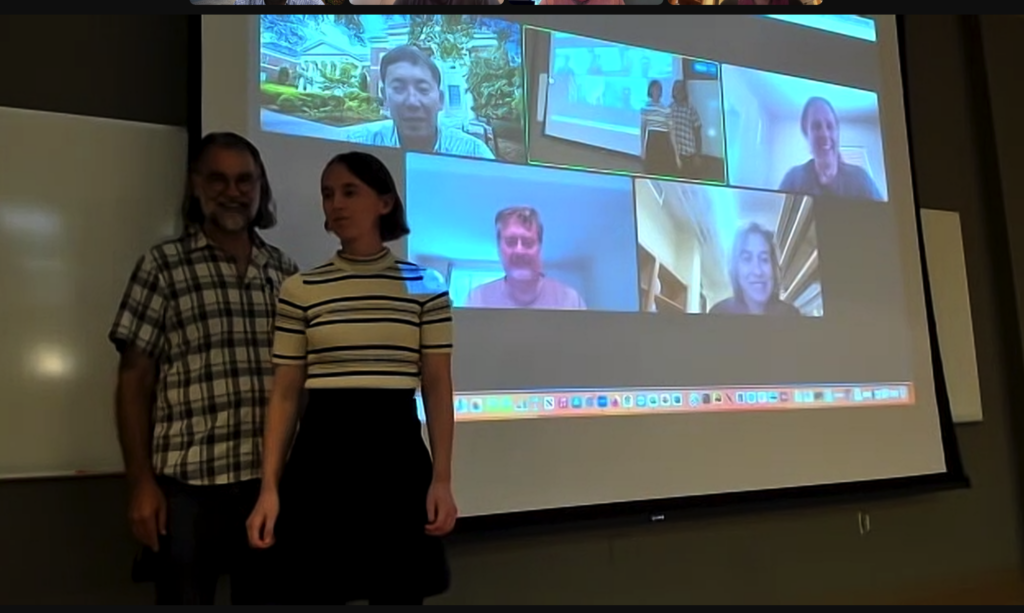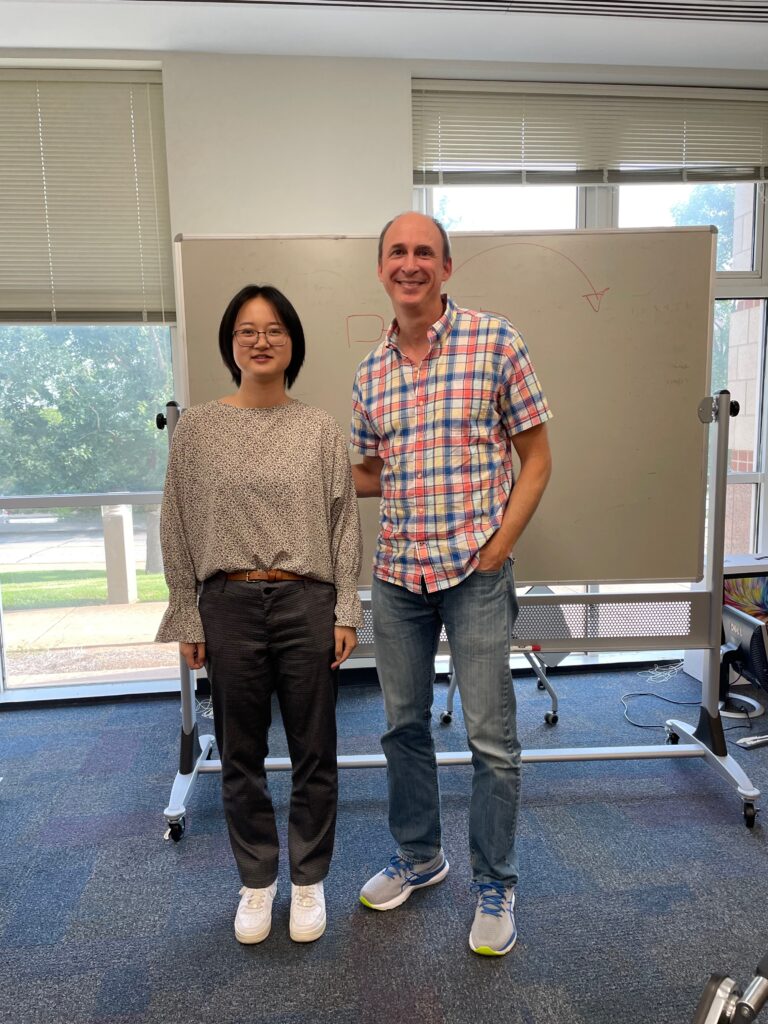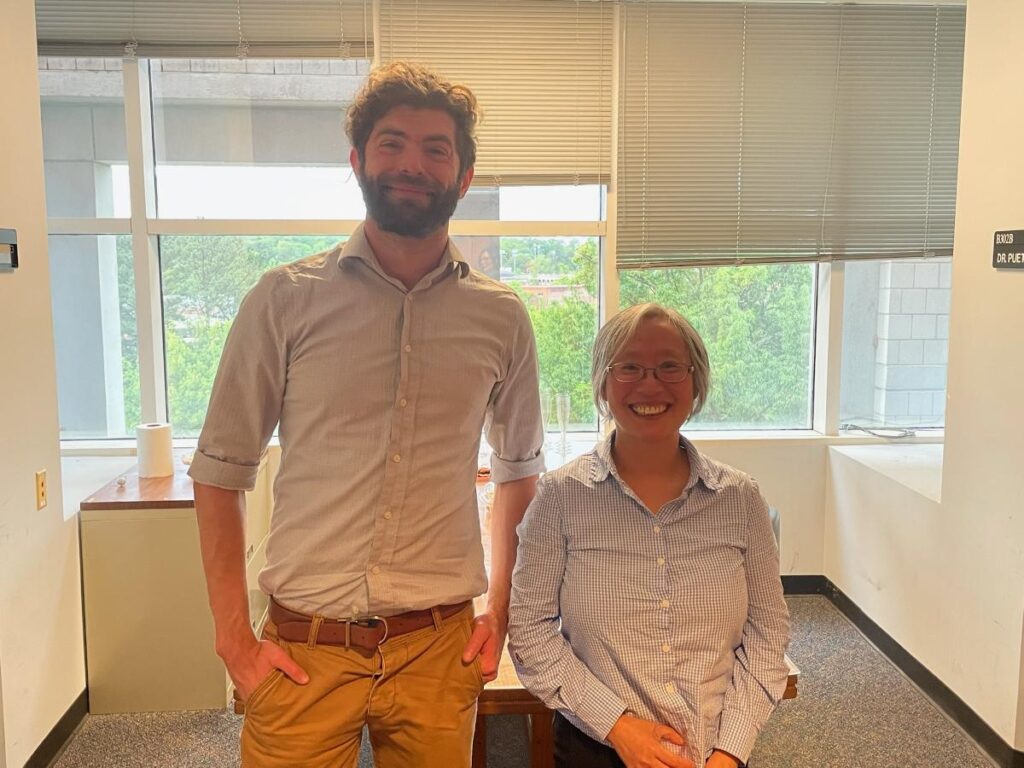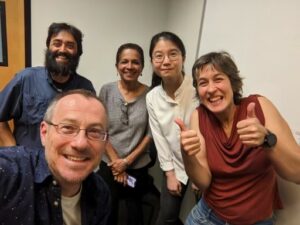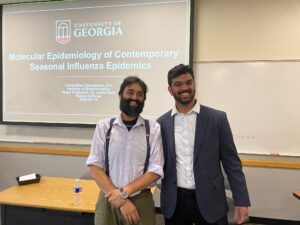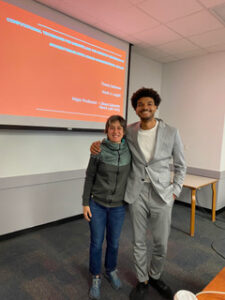The competition is open to all currently enrolled UGA master’s and doctoral students, and this year’s 3MT™ drew dozens of submissions from across the university. Several preliminary heats led to the selection of ten finalists, who submitted their presentations for a panel of judges.
The final competition was held Wednesday, April 5, 2023, at the University Chapel and was livestreamed on on Facebook.
CONGRATULATIONS, 2023 3MT™ WINNERS!
This year’s grand prize winner was Karen Gonzalez, a doctoral student in the Institute of Bioinformatics, for her presentation titled “Humans vs Viruses.”
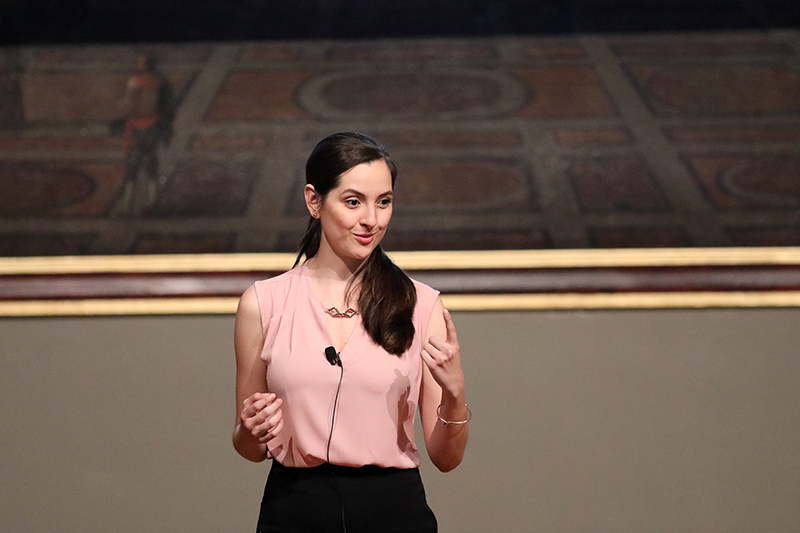
Karen Gonzalez, Grand Prize Winner
The runner-up was Chisom Okoli, a doctoral student in the Department of Nutritional Sciences, for presenting “Equity in Wellness: Development of an eLearning Training to Improve Healthy Beverage Consumption in Black Families of Young Children.”

Chisom Okoli, Runner Up Winner
The people’s choice award, which is given to the contestant who receives the most votes from viewers of the competition, went to Yang Su, a graduate student in the Department of Biochemistry and Molecular Biology, for his presentation of “The Bacteria Glycans: Trojan Horses in Disguise.”
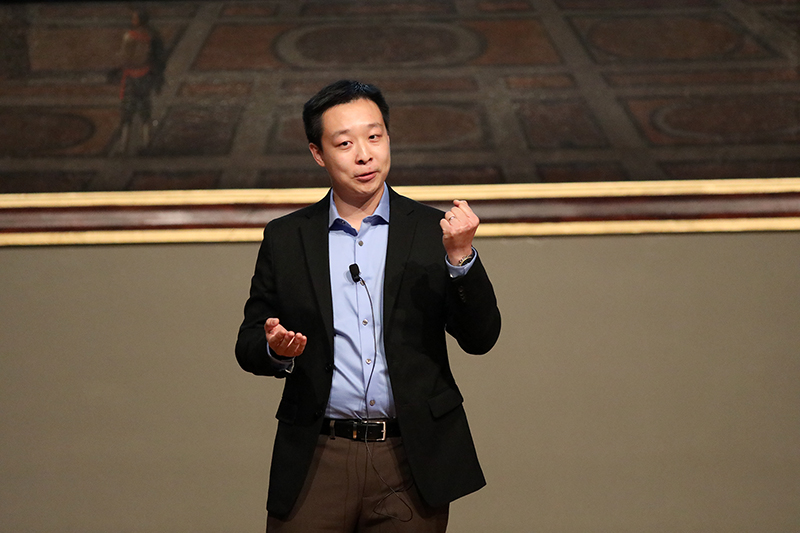
Yang Su, People’s Choice Winner
Three Minute Thesis (3MT™) is an academic competition developed by The University of Queensland (UQ), Australia.

